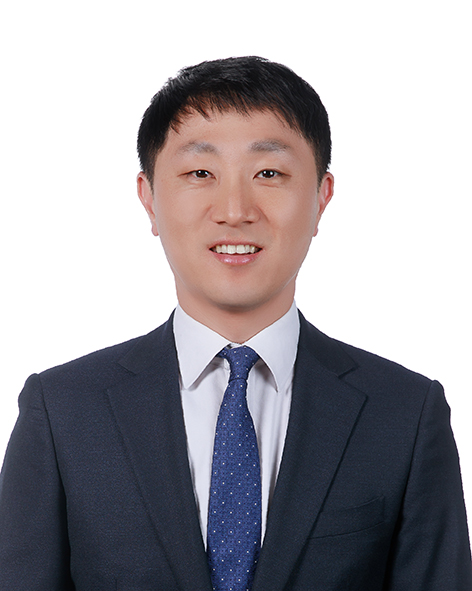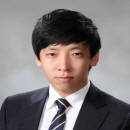Executive Summary
Outsiders often marvel at the mercurial nature of South Korean mass voting behavior. It was only a year ago that the ruling progressive party swept the general election by gaining a filibuster-proof majority in the National Assembly. In this year’s local by-election for open mayoral seats in the two largest metropolitan areas, however, nearly twice as many voters supported the opposition conservative candidates in what turned out to be a referendum on the ruling party. Similar swings can also be observed in South Korean public opinion. Our own survey indicates, for instance, that there was over 37.3%p swing in South Korean public assessment of inter-Korean relations between 2018 and 2019. While these types of dramatic shifts are not necessarily the norm, they raise questions about how we should approach our understanding of the South Korean public. In particular, what explains South Korean public opinion? Can we discern any systematic patterns? If so, what are the underlying factors at work?
This report aims to identify and explain fundamental trends in South Korean public attitudes about foreign policy and national security. Our topical choice is driven by several factors. In theory, public opinion on these matters should be trivial if the age-old adage holds true that “politics will cease at the water’s edge.” This, however, is not necessarily the case in South Korea. Although we cannot speak for all matters of foreign policy and national security, there is ample evidence suggesting deep meaningful differences in South Korean public opinion on matters related to, for instance, North Korea or the United States. It would be remiss of us to ignore these divisions given their consequential impact on politics and policy. Even more importantly, recent developments in the international arena suggest that we may have reached a critical turning point in great power relations and alliance formation; hence, the timing of this study is most apropos to review whether the South Korean public is keeping pace with these changes.
Established wisdom in public opinion research teaches us that collective policy preferences tend to be rational, stable, coherent, and mutually consistent. If there are any noticeable changes in collective policy preference, they tend to be sensible and predictable. For instance, the public seems to hold a very favorable view of the US and sees the US as an important ally for maintaining regional peace and stability. This support appears robust even after four years of difficult bilateral relations under the Trump Presidency in Washington. Even though changing circumstances may necessitate some adjustments in ROK-US alliance, South Koreans today seem to favor the continuation of this relationship even after unification. The approach on China is more cautious perhaps reasonably so given the precarious history of bilateral relations dating back to the Chosun era. Currently, there appears to be a genuine concern about the potential threat that China will pose to South Korea’s national interest. This is only reasonable given how South Koreans feel about their homeland’s relationship to the US. While South Koreans do not seem to perceive Japan as much of a threat compared to China, they still hold a negative view of this neighboring country given the checkered history intermingled with issues of national identity. North Korea is clearly a significant concern for many South Koreans but there is broad agreement that addressing this challenge is more difficult and there are differences of opinion among subgroups about how to deal with these problems. For instance, our data shows that there are notable differences across ideology, gender, and even age. Conservative, male, and younger as well as older cohorts tend to be more skeptical of Pyongyang and favor a more hawkish stance against North Korea. Progressive, female, and middle-aged cohorts tend to favor a more dovish policy.
Our findings also show that breaking events coupled with elite discourse can also shape public opinion. For instance, South Korean public opinion about North Korea was more favorable during engagement in 2018 but less so after the failed Hanoi Summit in early 2019. Of course, the impact of elite framing and current events may depend on the accessibility and cost of information. This explains why broad shifts in the mood of South Korean public opinion was uniform across all subgroups. For instance, 84.1% of the respondents characterized inter-Korean relations in 2020 as “bad” while only about 63% thought the same in 2018. Part of this was due to the events that transpired between 2018 and 2020. However, we saw more swings (+50%p) in sentiments among respondents aged between 20 and 50. There was less change among older cohorts (i.e., 50s: 37.8→84.9%= 47.1%p, 60s: 51.3→86.9%= 35.6%p). Part of this was due to the fact that individuals in the lower age category had higher hopes about the success of diplomacy. The failed Hanoi talks essentially led to greater disappointment. In short, what this goes to show is that elite framing and current events in combination with individual characteristics, such as ideology and capacity to process information, can shape opinion formation and change.
Aside from this, some more detailed findings from this report are as follows:
ㆍNearly 77% of surveyed respondents expressed interest in unification. 53.5% stated that the speed with which to move forward on unification should be adjusted and more than 1 in 4 (25.5%) stated that there is no need to rush unification.
ㆍViews about unification were tempered by expectations about its cost as 63% of those surveyed stated that they anticipated South Korea’s post-unification economy to be worse off. The respondents stating that they are not willing to pay for unification increased from 20.6% in 2011 to 45.5% in 2020.
ㆍWhen asked how the respondents perceived North Korea, 27.9% said “neighbor,” 25.7% stated “enemy,” 11.5% said “stranger,” and 21.1% said “one of us.”
ㆍNearly 79% of those surveyed stated that South Korea should provide economic aid to North Korea only if Pyongyang changes its behavior. 21.3% stated that aid should continue unconditionally.
ㆍ94.9% of those surveyed agreed that the human rights situation in North Korea was serious and 78.3% stated that this issue should be addressed immediately.
ㆍOver 57% of the respondents stated that they assessed the likelihood of war with North Korea to be low. Over 72% of those surveyed stated that South Korean military cannot deter North Korea in the event of a contingency on the Korean Peninsula.
ㆍNearly 95% of South Koreans believe that North Korea possesses a working nuclear capability and over 93% believes that North Korea will not abandon this capability.
ㆍNearly 70% of the respondents supported developing indigenous nuclear capability and over 61% supported reintroducing tactical nuclear weapons.
ㆍWith respect to the ROK-US alliance, over 78% supported either maintaining or strengthening the bilateral relationship. Over 86% supported keeping the alliance even after unification.
ㆍWith regards to US Forces Korea, over 70% supported either maintaining or increasing the troop level.
ㆍOn burden sharing, over 41% supported maintaining the current level of South Korean contribution to the Special Measures Agreement.
ㆍOn wartime operational control (OPCON) transfer, 42.5% favored condition-based transfer while 27.2% favored schedule-based transfer.
ㆍ25.9% of the respondents saw China as a significant security threat after North Korea (55.8%). 66.7% named China as the greatest threat to South Korea after unification.
ㆍ71.5% of survey respondents assessed Japan’s influence in the region to be negative.
ㆍOnly 11.3% of the respondents stated that Japan is a national security threat. 23.1% saw Japan as a potential security threat after unification.
ㆍSouth Koreans are concerned about global issues, such as climate change, cybersecurity, humanitarian aid, and public health, among others.
Together, what these findings reveal are important intricacies of South Korean public opinion on matters related to foreign policy and national security. While these details may not necessarily drive policy, they reveal important truths about the political challenges associated with navigating a foreign policy that runs against South Korean public sentiment. This knowledge will prove especially useful as South Korea winds up for a presidential election in 2022. Although foreign policy rarely dictates the outcome of the election, how each candidate positions themselves on these issues may contribute to their rise or demise.
TABLE OF CONTENTS
Executive Summary
1. Introduction
2. Korean Peninsula
2.1 North Korea
2.1.1 Unification
2.1.2 Inter-Korean Relations
2.1.3 North Korea as a National Security Threat
2.1.4 Addressing the North Korean Challenge
2.2 ROK-US Alliance
2.2.1 The Alliance and Extended Deterrence
2.2.2 USFK and OPCON
2.2.3 The US in the Eyes of South Koreans
2.3 Regional Security
2.4 Global Security Agenda
3. Conclusion
Survey Methodology
Appendix I: Chronicles of Inter-Korean Relations from 2010 to 2020
Appendix II: 2020 Asan Annual Survey Questionnaire

 Facebook
Facebook Twitter
Twitter

